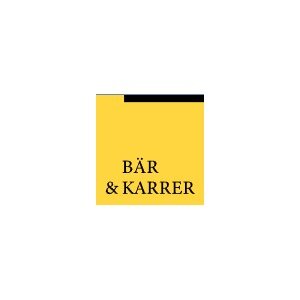Best Employment & Labor Lawyers in Zurich
Share your needs with us, get contacted by law firms.
Free. Takes 2 min.
List of the best lawyers in Zurich, Switzerland
About Employment & Labor Law in Zurich, Switzerland
Employment and Labor law in Zurich, and more broadly, Switzerland, encompasses a set of regulations governing the rights and duties of employers and employees. These laws are designed to foster a fair working environment, protect employees' rights, and ensure effective and productive work relations. Employment and labor laws cover aspects such as working hours, employment contracts, termination, minimum wage, health and safety conditions, and discrimination prevention. Zurich, being a key financial and commercial hub in Switzerland, adheres to these federal laws but may also have local nuances that necessitate specialized guidance for employers and employees alike.
Why You May Need a Lawyer
There are several reasons why individuals or businesses might need legal assistance in Employment and Labor law in Zurich:
- Contract Issues: Assistance in drafting, reviewing, or enforcing employment contracts to ensure compliance with Swiss law.
- Disputes and Grievances: Navigating conflicts between employers and employees, such as unfair dismissal claims or breach of contract issues.
- Workplace Discrimination or Harassment: Addressing allegations or grievances related to unlawful discrimination or harassment at work.
- Advice on Employee Rights: Understanding legal rights regarding working hours, overtime, holidays, and leave entitlements.
- Company Restructuring: Legal guidance on workforce changes, redundancies, or relocation processes.
Local Laws Overview
Employment and labor laws in Zurich operate under the Swiss Code of Obligations, the Federal Labor Act, and various collective labor agreements. Key aspects include:
- Employment Contracts: Can be oral or written, but written contracts are advisable and should detail key terms and conditions.
- Working Hours: The maximum weekly working hours are generally 45 for industrial workers and 50 for other employees, with overtime regulated accordingly.
- Termination Protections: Employees enjoy protection against unfair dismissal, with mandatory notice periods based on years of service.
- Equal Treatment: The law prohibits discrimination based on gender, nationality, religion, race, or personal circumstances.
- Collective Labor Agreements: These agreements might add additional obligations or rights to certain industry sectors.
Frequently Asked Questions
What constitutes an employment contract in Switzerland?
An employment contract in Switzerland can be either verbal or written; however, a written contract is recommended for clarity and to protect both parties’ rights.
How much notice is required for terminating an employment contract?
This depends on the length of the employment. Generally, after the probation period, a one-month notice is typical, increasing with years of service.
Are there protections against unfair dismissal?
Yes, employees are protected against unfair dismissals, including dismissals for discriminatory reasons or those lacking justified grounds.
What is the standard working week in Zurich?
The standard working week is typically 40 to 42 hours, though this can vary with contractual agreements and industry standards.
What rights do employees have if they are made redundant?
Employees have the right to a notice period and might receive support or retraining opportunities, depending on company policies and collective agreements.
Is there a statutory minimum wage in Zurich?
Switzerland does not have a nationwide minimum wage, but some cantons, including Zurich, have introduced their own minimum wages.
Are employees entitled to overtime pay?
Yes, overtime work must be compensated at an increased rate, usually 125% of the regular pay, unless otherwise agreed upon in writing.
What should I do if I experience workplace discrimination?
It is advisable to document the incidents and seek legal advice or assistance from relevant authorities or organizations dealing with workplace discrimination.
Can employees in Zurich take parental leave?
Yes, both mothers and fathers are entitled to parental leave. Maternity leave is 14 weeks, and, as of 2021, paternity leave is two weeks, with payments included.
How are employee grievances typically resolved?
Grievances can be resolved through internal procedures within the company, mediation, or in some cases, legal proceedings if necessary.
Additional Resources
For more information and assistance, consider these resources:
- Swiss Federal Office of Justice: Provides resources on federal laws and legal guides.
- Cantonal Employment Office Zurich: Offers services and information related to employment in the Zurich area.
- Swiss Unions: Various unions provide support and guidance for workers in different sectors.
- Employment Counselling Centers: Available for both employers and employees needing advice.
Next Steps
If you need legal assistance in Employment & Labor matters in Zurich, consider the following steps:
- Identify the nature and specifics of your legal issue.
- Gather any relevant documentation and evidence related to your case.
- Consult with a specialized employment lawyer who has experience in Zurich’s local law.
- Consider contacting relevant organizations or governmental bodies for initial guidance or mediation options.
By understanding your rights and the appropriate legal channels, you can more effectively navigate employment-related challenges in Zurich, Switzerland.
Lawzana helps you find the best lawyers and law firms in Zurich through a curated and pre-screened list of qualified legal professionals. Our platform offers rankings and detailed profiles of attorneys and law firms, allowing you to compare based on practice areas, including Employment & Labor, experience, and client feedback.
Each profile includes a description of the firm's areas of practice, client reviews, team members and partners, year of establishment, spoken languages, office locations, contact information, social media presence, and any published articles or resources. Most firms on our platform speak English and are experienced in both local and international legal matters.
Get a quote from top-rated law firms in Zurich, Switzerland — quickly, securely, and without unnecessary hassle.
Disclaimer:
The information provided on this page is for general informational purposes only and does not constitute legal advice. While we strive to ensure the accuracy and relevance of the content, legal information may change over time, and interpretations of the law can vary. You should always consult with a qualified legal professional for advice specific to your situation.
We disclaim all liability for actions taken or not taken based on the content of this page. If you believe any information is incorrect or outdated, please contact us, and we will review and update it where appropriate.
Browse employment & labor law firms by service in Zurich, Switzerland
Zurich, Switzerland Attorneys in related practice areas.















